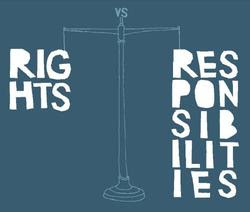Q.2.2 Digital footprints can be construed as trails that digital citizens leave online. Do you think that digital footprints could become a problem? Discuss.
A
digital footprint is known as everything we do and say online creating a
footprint of sorts. Someone may have already accessed, viewed or saved
something that people think they may have delete from the Internet, social
media sites, or any online mechanism, it does not mean it is gone. That
means that just because you have deleted it, it does not mean it is gone. The
person that accessed the information or image may have saved it and then decided
to share it onwards.
Our
digital footprint creates the basis of our online reputation, a reputation that
others may access to assess whether or not we are trustworthy, reliable,
likeable, etc. One needs to be very careful with their online reputation,
as it is just as important as their offline one.
There
are many cons of having a digital footprint here are some examples of harmful
digital footprints;
1.
Identity Theft:
Any
photo that is publicly shared is fair game for identity thieves so anyone is at
risk especially perceptible teens. Posting personal information is a serious
liability. Identity theft is on the rise and is a serious problem with very
damaging consequences.
Personal data can be used to generate revenue without our
knowledge
2.
College Admissions & the Military:
College
admissions officers can and do read your teen’s online profile. If your son or
daughter is applying to college and is on the bubble against another applicant,
the difference between them gaining acceptance, and receiving a rejection
letter could be something immature that was posted on social media. This
extends to moral aptitude requirements in the military if your child is
planning on enlisting.
It can be annoying and distracting to be constantly inundated
with advertisements and information.
3.
Employers & Internships:
Employers
will Google you. Even if it’s just a job you are applying for to make some
extra money while going to college. Additionally college internships are now
becoming a prerequisite for gaining employment post-college. Internships are
competitive enough. The difference between your son or daughter and another
applicant could be their digital footprint.
Purchase behavior data may be used as a basis to reduce credit
limits or increase interest rates
4.
Scholarships:
Scholarships
often ask applicants to share their social media profiles as part of the
process in applying online. Any immature posts, cyber bullying, or generally
distasteful material found on your child’s profile could prevent prohibit them
from gaining a scholarship.
5.
Sports:
Is
your son or daughter planning on playing sports in college? Recruiters and
coaches surely will want to know about your teen’s conduct on social media.
REFERENCES:
https://www.fosi.org/good-digital-parenting/harmful-digital-footprint-impacts-teens/
http://www.vivint.com/neighborhood/tech-neighbor/pros-and-cons-of-your-digital-footprint/




The explanation about the footprint is clear
ReplyDeleteThe explanation about the footprint is clear
ReplyDelete